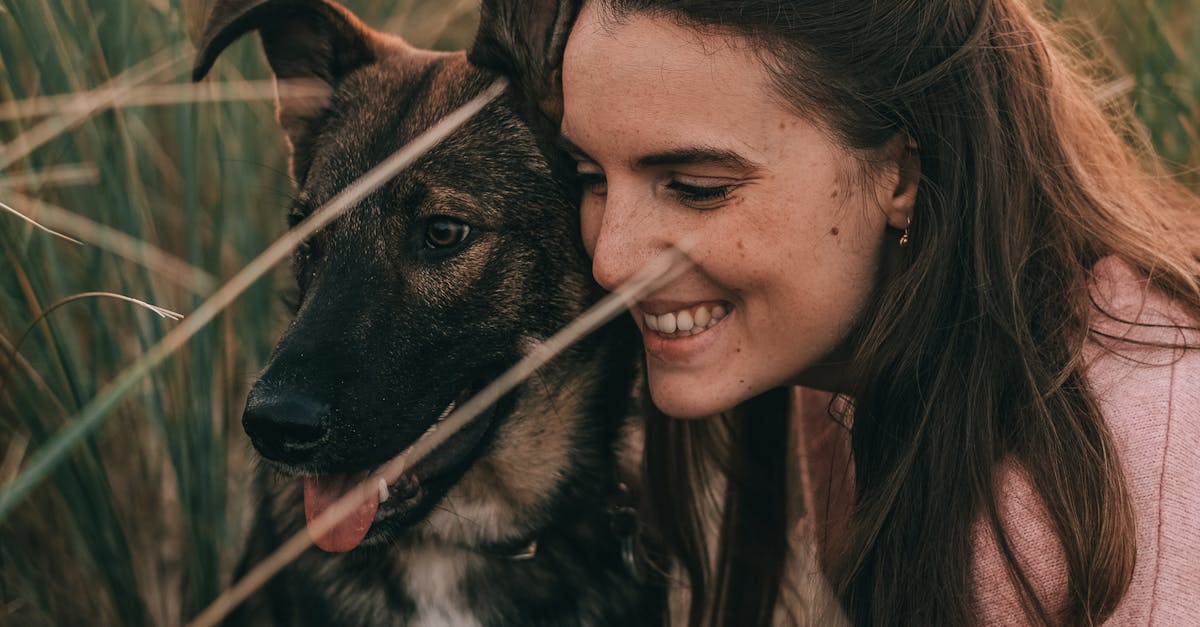Why Dogs Are More Than Just Pets 🐾
If you’re like me, you probably think you know a lot about dogs. They’re man’s best friend, right? They fetch, they bark, they wag their tails when they’re happy. But let me tell you, there’s so much more to our furry companions than meets the eye. In my experience, dogs are full of surprises, and the more you learn about them, the more fascinating they become.
The Science Behind a Dog’s Nose 👃
Here’s a funny thing: a dog’s sense of smell is nothing short of extraordinary. Studies show that a dog’s nose has up to 300 million olfactory receptors, compared to a human’s mere 6 million. Imagine if you could smell a drop of liquid in an Olympic-sized swimming pool—that’s the kind of superpower we’re talking about here.
From my point of view, this incredible sense of smell is why dogs are used in various roles, from sniffing out drugs and explosives to detecting diseases like cancer and diabetes. Personally, I’ve found it fascinating that some dogs can even sense when their owner is about to have a seizure.
The Emotional Depth of Dogs 🐶
You might already know that dogs are loyal and affectionate, but did you know they can experience a range of emotions similar to humans? I’d never have guessed that dogs can feel jealousy, guilt, and even depression.
I’ve noticed that when I’m feeling down, my dog seems to pick up on my mood and offers comfort in his own way. It’s interesting that studies have shown dogs release oxytocin, the “love hormone,” when they interact with their owners, just like humans do.
Speaking from experience, the bond between a dog and its owner is something truly special. It’s clear that dogs are not just pets; they’re emotional companions who can improve our mental well-being.
The Intelligence of Dogs 🧠
I guess you could say that dogs are smarter than we give them credit for. Picture this: dogs can understand up to 250 words and gestures, and they can count up to five. Some dogs have even been trained to perform complex tasks like opening doors, turning on lights, and even using a computer!
In my opinion, the intelligence of dogs is often underestimated. I, for example, have trained my dog to fetch specific items by name, and it’s amazing to see how quickly he learns new commands.
Here’s a quick story: I once read about a Border Collie named Chaser who knew the names of over 1,000 different toys. Imagine the cognitive abilities required to remember and distinguish between so many objects!
The Health Benefits of Owning a Dog 🏃♂️
Let me tell you, owning a dog is not just good for your soul; it’s good for your body too. Studies show that dog owners tend to be more active and have lower blood pressure and cholesterol levels.
From what I’ve seen, having a dog encourages you to get outside and move, whether it’s for a walk, a run, or a game of fetch. I’ve often wondered how my life would be different without my daily walks with my dog, and I can’t help but think I’d be a lot less active.
Here’s a thought: the companionship of a dog can also reduce feelings of loneliness and isolation, which is crucial for mental health. In my own life, my dog has been a constant source of joy and companionship, especially during tough times.
The Unique Ways Dogs Communicate 📣
I couldn’t help but notice that dogs have their own unique ways of communicating, not just with us but with each other. Dogs use a combination of body language, vocalizations, and even facial expressions to convey their feelings and intentions.
It’s worth mentioning that a wagging tail doesn’t always mean a dog is happy. The speed and direction of the wag can indicate different emotions. For example, a slow wag with the tail held low can signify insecurity or fear, while a fast wag with the tail held high usually means excitement.
As someone who has spent a lot of time observing dogs, I’ve found that understanding their body language can greatly improve your relationship with them. It’s clear that dogs are always communicating with us; we just need to learn how to listen.
The Lifesaving Abilities of Dogs 🚨
Here’s a story that might surprise you: dogs have been known to save lives in remarkable ways. From alerting their owners to house fires to rescuing people from drowning, dogs have an uncanny ability to sense danger and take action.
I, for example, have read numerous accounts of dogs alerting their owners to carbon monoxide leaks or gas leaks in the home. It’s interesting that some dogs are trained specifically for search and rescue missions, using their incredible sense of smell and agility to locate missing persons.
In my opinion, the lifesaving abilities of dogs are a testament to their intelligence, loyalty, and training. I’ve been there, witnessing firsthand how a dog’s intuition and quick thinking can make all the difference in an emergency situation.
The Therapeutic Role of Dogs 🛋️
Imagine if you could have a therapist who’s always available, never judges, and offers unconditional love. That’s what therapy dogs provide for many people. These specially trained dogs visit hospitals, nursing homes, schools, and even disaster areas to offer comfort and support.
Personally, I’ve found that interacting with therapy dogs can have a profound impact on mental and emotional well-being. Studies show that spending time with a therapy dog can reduce stress, anxiety, and even pain levels.
I’d like to share a quick story: I once volunteered at a hospital where therapy dogs visited patients. The joy and comfort these dogs brought to people, especially children, were incredible to witness. It’s clear that therapy dogs play a vital role in improving the quality of life for many individuals.
The Quirky Behaviors of Dogs 🐕
Here’s a funny thing: dogs have some quirky behaviors that can leave you scratching your head. Why do they chase their tails, dig holes in the yard, or roll in smelly things?
I’ve often wondered about these odd behaviors, and the reality is, many of them are instinctual. For example, tail-chasing can be a way for dogs to burn off excess energy, while digging holes might be a throwback to their wild ancestors who buried food to keep it safe.
I couldn’t help but notice that my dog loves to roll in the grass, especially if it’s dirty or smelly. As I see it, this behavior might be a way for dogs to mask their scent or simply because it feels good.
The Future of Dogs in Society 🚀
Looking back, it’s amazing to see how the role of dogs in society has evolved. From working animals to beloved pets, dogs have become an integral part of our lives. But what does the future hold for our furry friends?
I guess you could say that the future is bright for dogs. Advances in veterinary medicine mean that dogs are living longer, healthier lives. Additionally, the increasing recognition of the benefits of therapy and service dogs means that more people will have access to these incredible animals.
In my opinion, the bond between humans and dogs will only continue to grow stronger. As someone who has experienced the joy and companionship of a dog, I can’t help but think that our lives are richer and more fulfilling because of these amazing animals.
Wrapping It Up
So, there you have it—some surprising facts about dogs that everyone should know. From their incredible sense of smell to their emotional depth and lifesaving abilities, dogs are truly remarkable creatures. Whether you’re a seasoned dog owner or considering bringing a dog into your life, it’s clear that these furry friends have so much to offer.
The next time you look at your dog, remember that there’s a lot more going on behind those soulful eyes than you might think. And if you’re like me, you’ll find that the more you learn about dogs, the more you’ll appreciate just how special they are. 🐾














